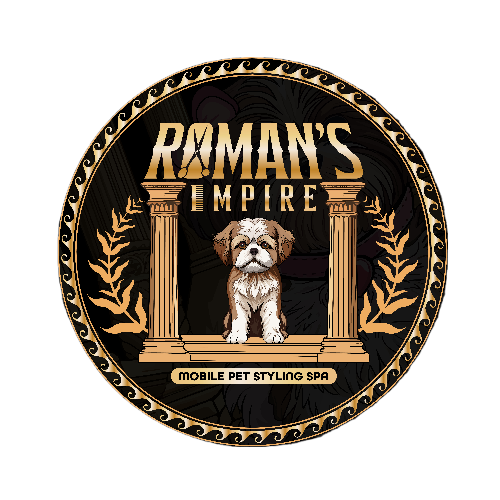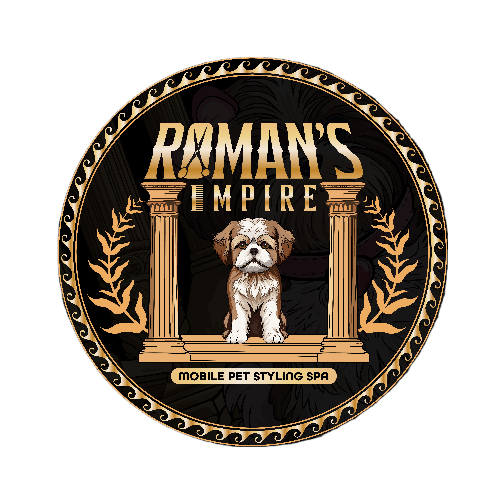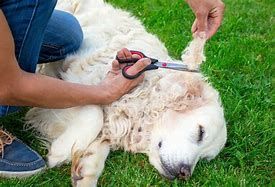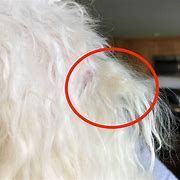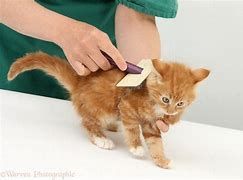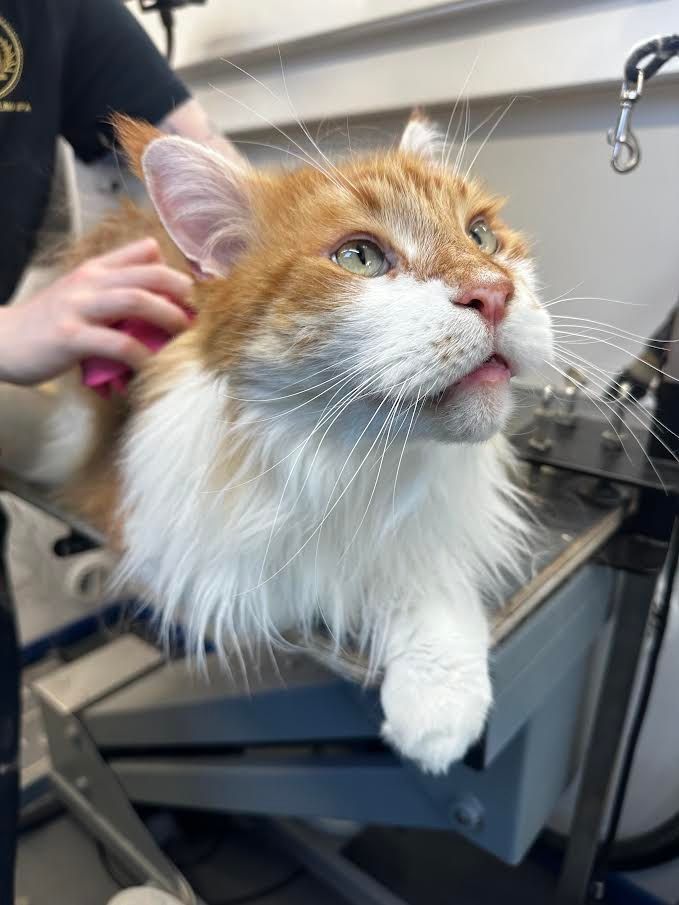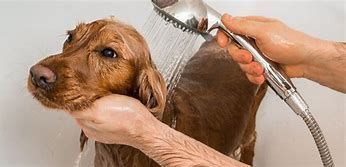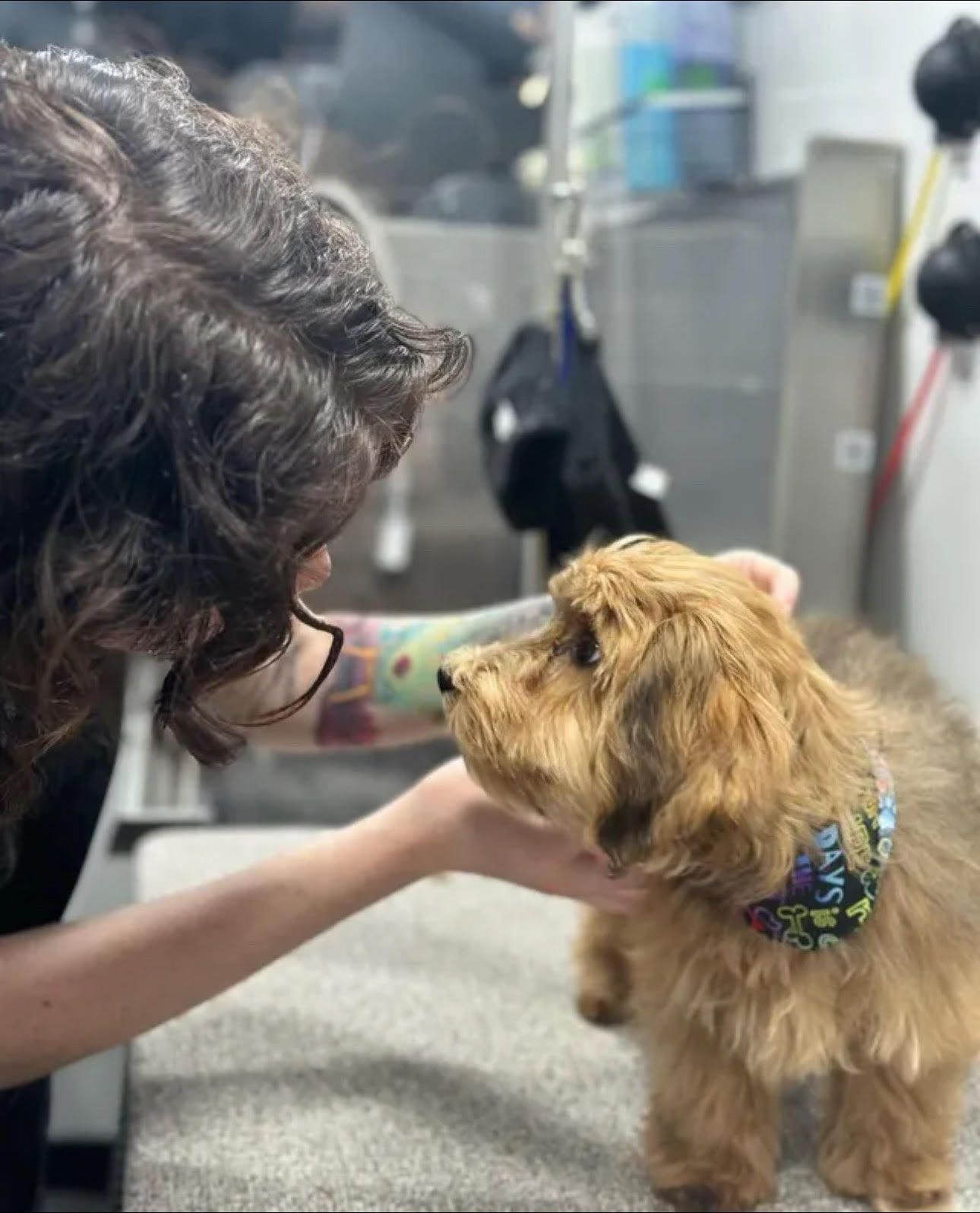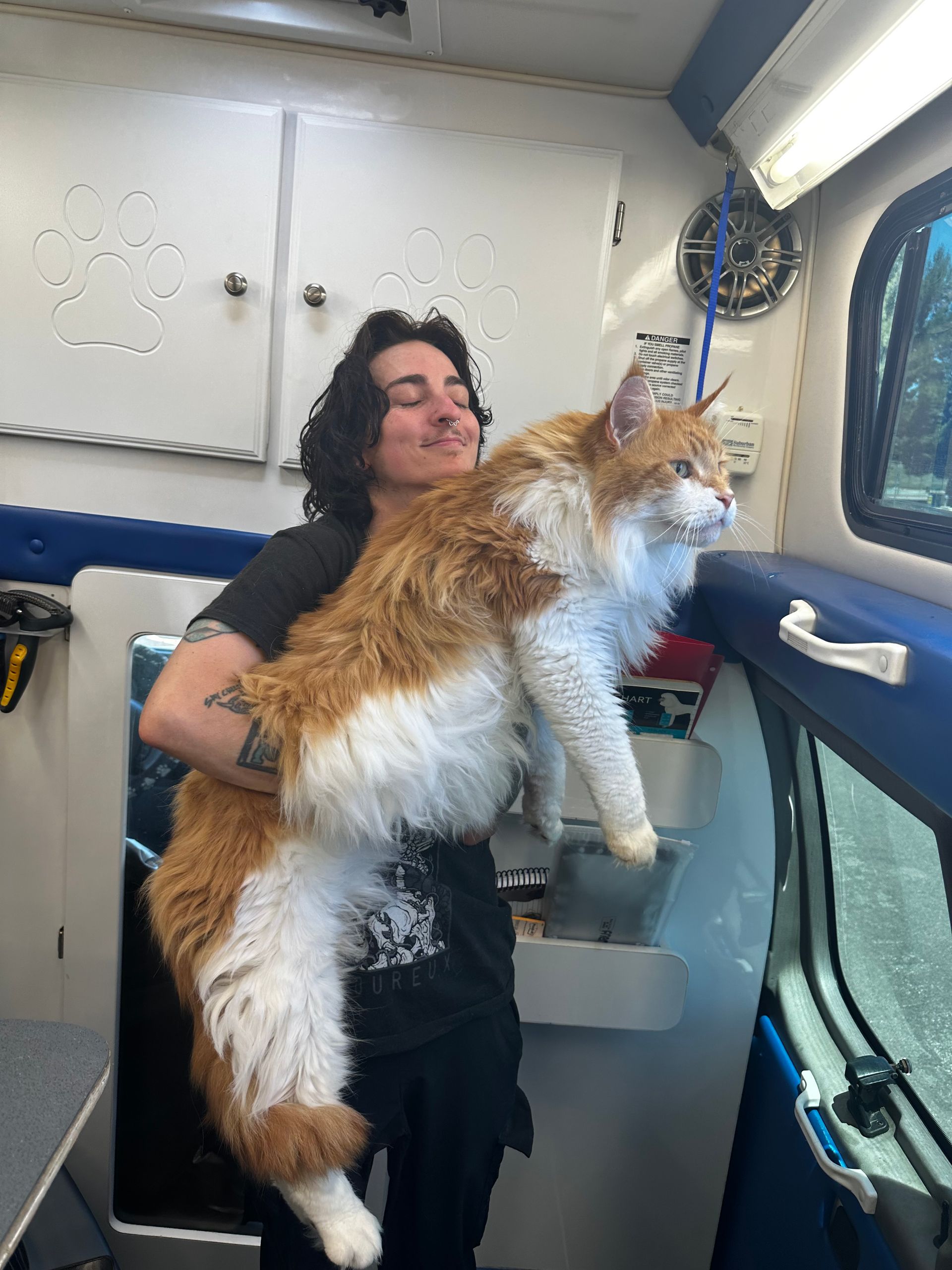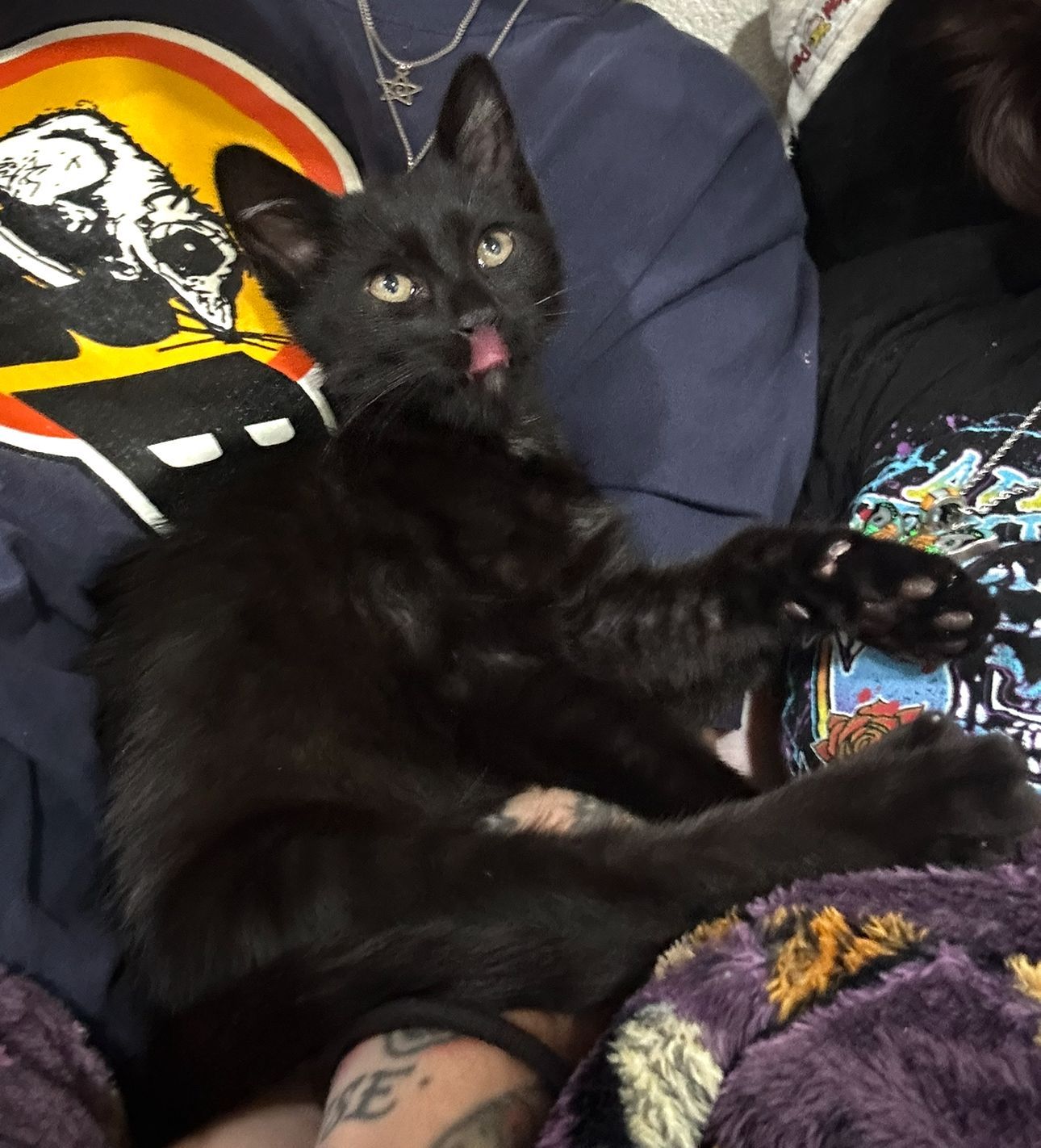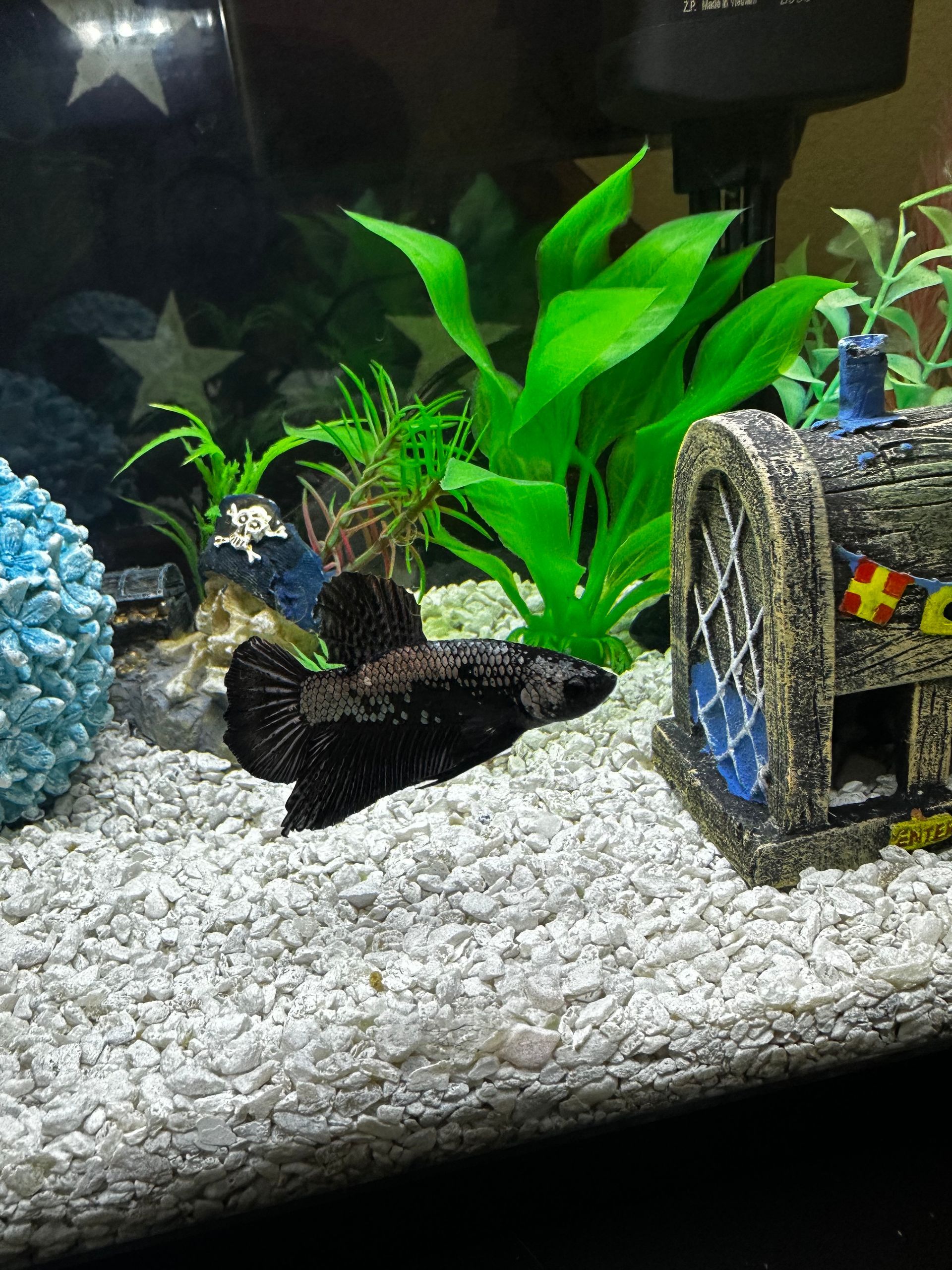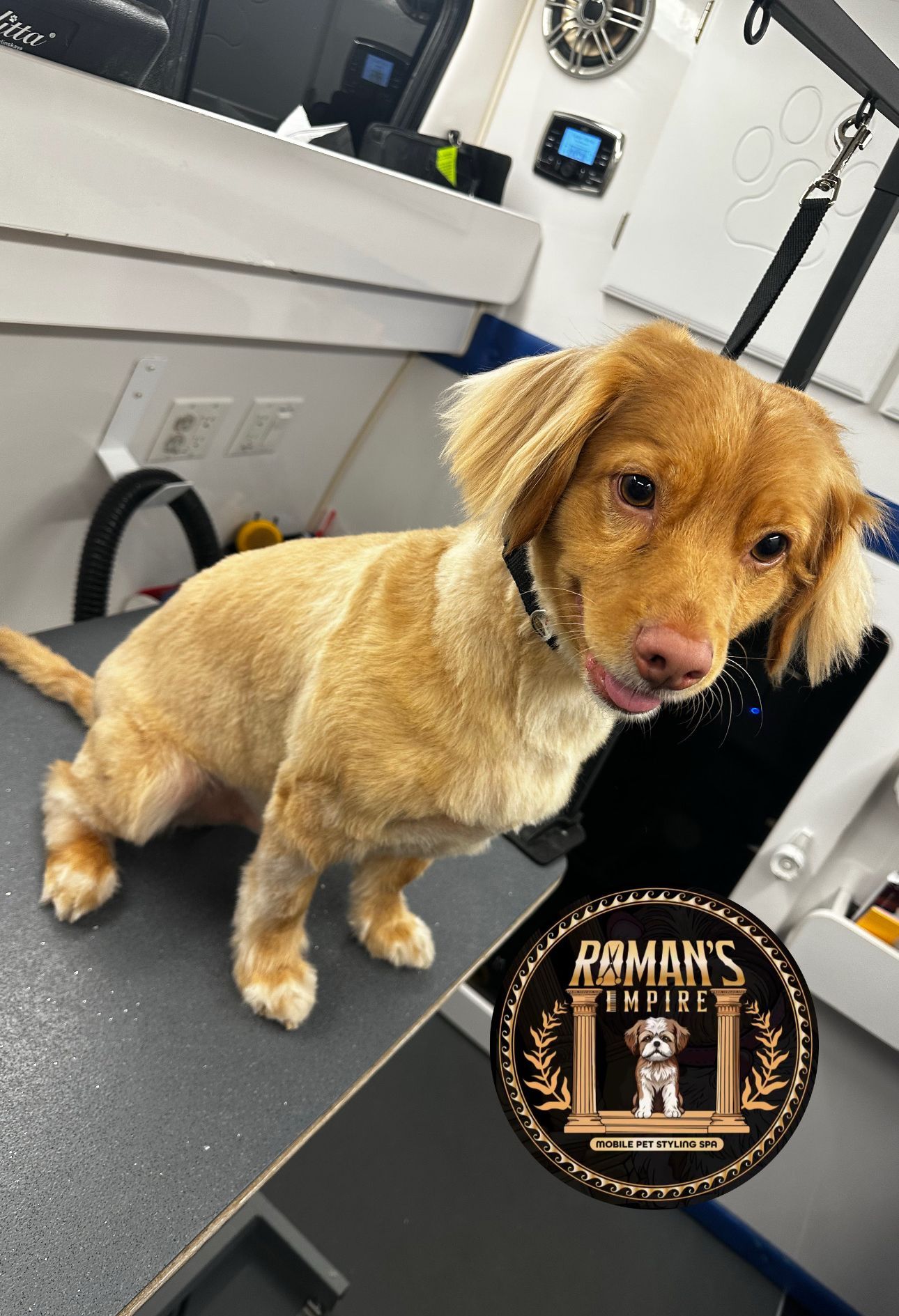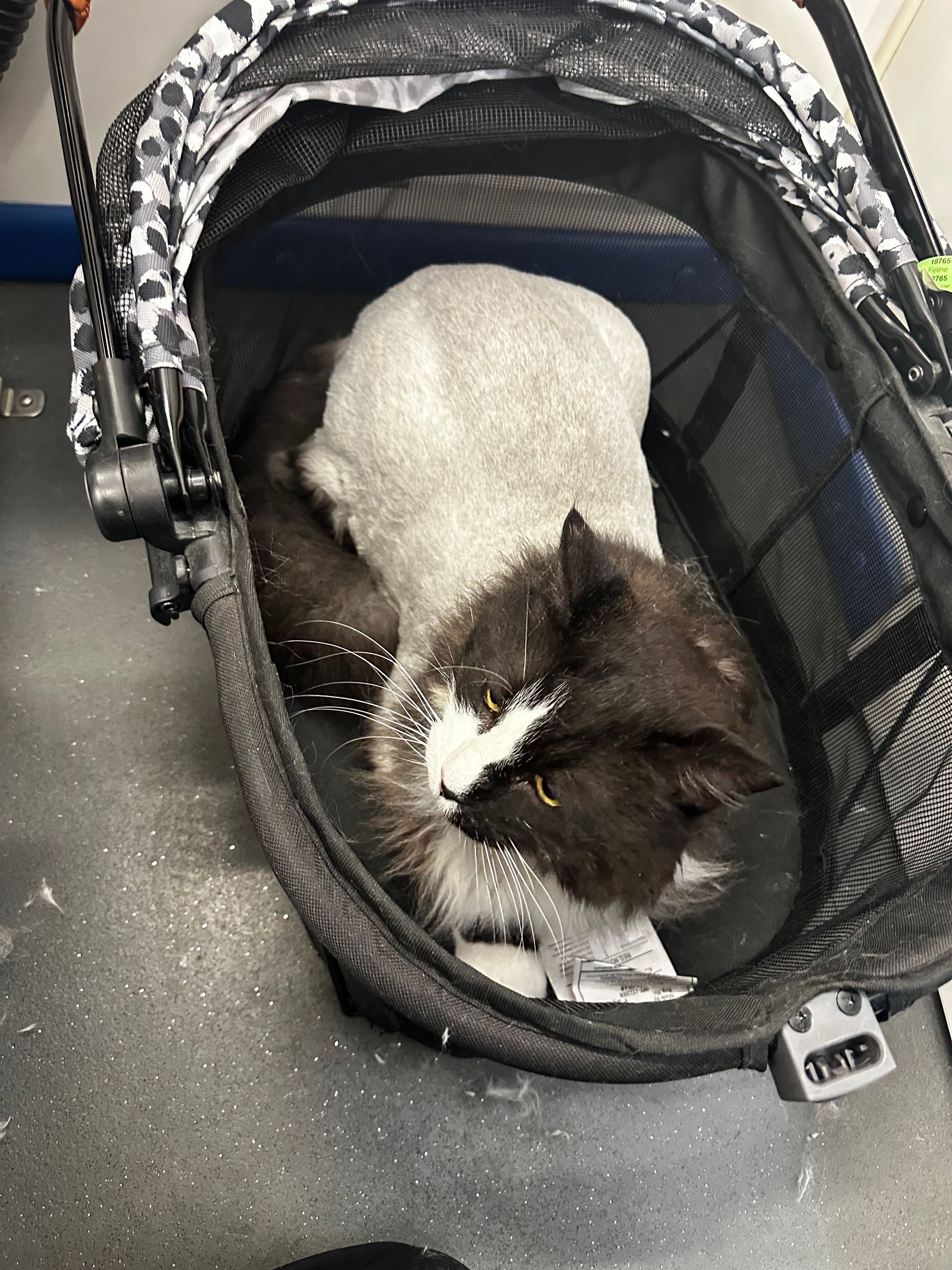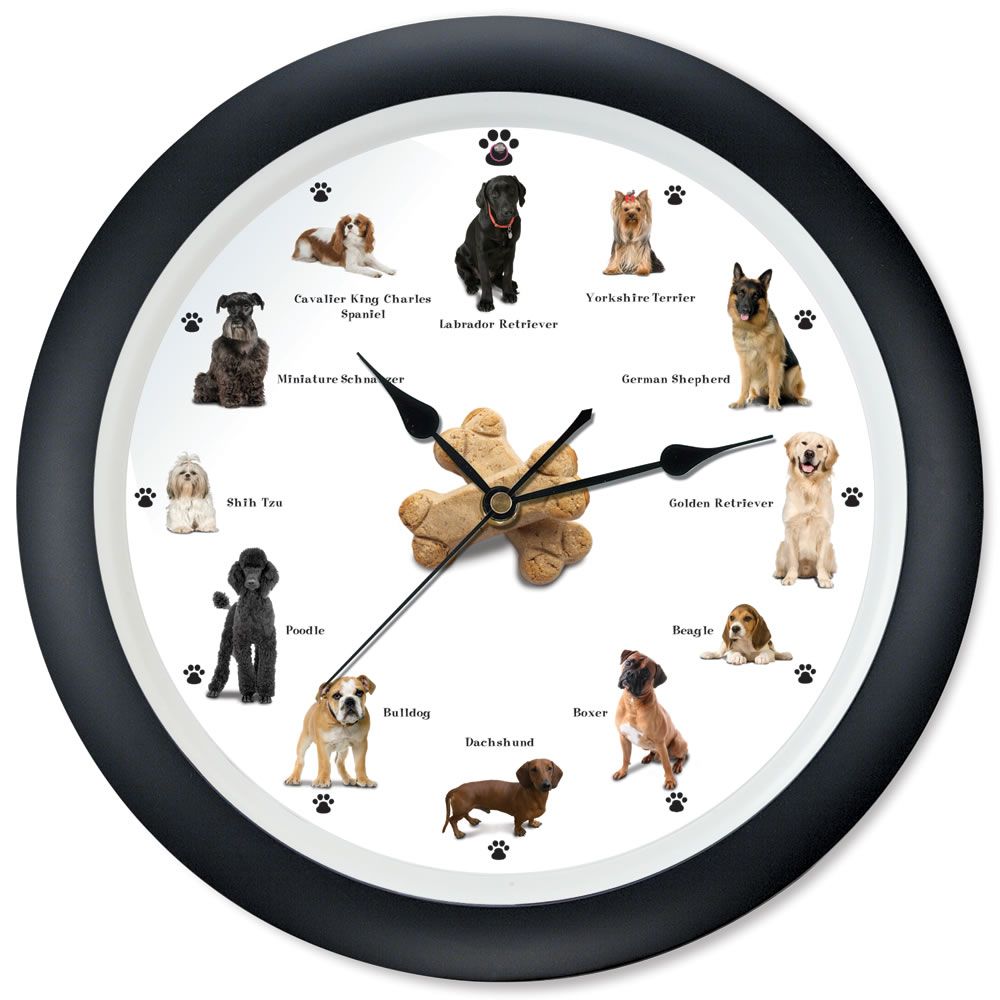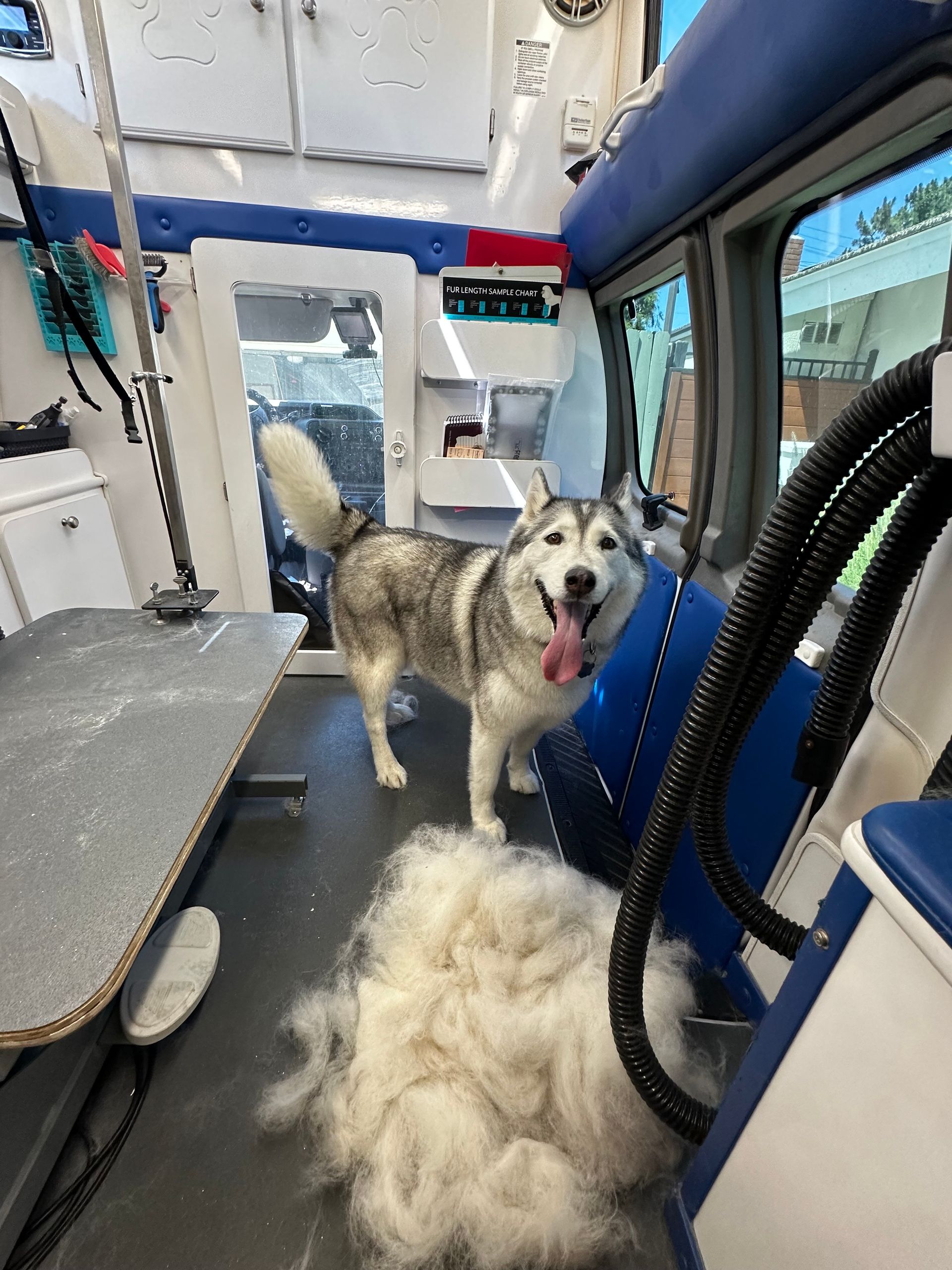Cooperative Care: A Kinder Approach to Husbandry
At Roman's Empire, grooming isn't a production line--it's a relationship. Every pet is different, and we believe grooming should reflect that. That's why we use a cooperative care approach: a philosophy rooted in communication, trust, and consent that improves safety, comfort, and results for everyone involved--groomer and pet alike.
Whether your pet is calm and seasoned or a nervous novice, cooperative care sets the tone for a better experience both now and long-term--and isn't solely tied to grooming.
What Is Cooperative Care?
Cooperative care, in a grooming context, means grooming with your pet, not to them. It's about creating a partnership built on predictability and respect. Key techniques include:
- Gradual desensitization to tools, touch, and handling
- Reading and responding to body language cues
- Positive reinforcement (calm tone, praise, treats when appropriate)
- Letting pets take breaks when overstimulated
- Avoiding force, punishment, inappropriate praise or rewards, or rushing through procedures
This approach teaches both dogs and cats they are safe, seen, and supported during their grooming sessions--not just restrained and handled.
How It Benefits All Pets
Cooperative care isn't just for difficult or fearful pets--it improves the grooming experience for every breed, every temperament at every age:
- Confident pets build even more trust and enjoyment
- Older pets with arthritis or pain benefit from gentler handling
- Puppies and kittens learn to enjoy grooming from the start
This provides better results and quicker appointments as they relax and remain calm. Owners see fewer behavioral regressions and have more peace of mind.
Helping Anxious or Aggressive Dogs
Of course, cooperative care practices are especially important for pets with behavioral challenges. Many "bad" dogs are simply fearful, overstimulated, or misunderstood.
At Roman's Empire, we never force a groom through at the expense of trust or safety. Instead, we:
- Evaluate behavior in real-time and adopt accordingly
- Take breaks if your pet becomes overstimulated or reactive
- Use minimal restraint and maximum patience
- May reschedule or discontinue services if continuing would increase fear, stress, reactivity or risk of injury
- Collaborate with you to create a long-term grooming plan that works
We charge for time and service booked, even if grooming is paused for safety--but you'll leave with a plan, not just a problem to solve on your own.
If They Can Opt-In, Won't They Just Opt-Out?
Here's the truth: they already do. Resistance, avoidance, and reactivity are forms of opting out--they just aren't respected as such. Most pets aren't truly given a choice; they're handled through the discomfort until they shut down or fight back.
Think of it like this: have you ever felt a sudden, rare burst of motivation to wash the dishes--only to have someone remind you it's your "responsibility"? That spark vanishes instantly, right? Now imagine you're still made to do it, every time, until you start to associate forks and soap with anxiety. Eventually, it's not just dishes--it's dread.
Now imagine instead that your best friend steps in. They validate how you feel. They reassure you. They move at your pace. They show you silverware and soap aren't the villain here, and they turn it into a fun, safe, rewarding experience. Suddenly, it's something you're willing--even eager--to do.
That's what cooperative care is. Not letting pets call all the shots--but helping them want to participate.
Why This Approach Matters
Animals remember how grooming made them feel. When it's done with compassion and clarity, it becomes a positive experience instead of a stressful ordeal. And over time, it leads to:
- Smoother appointments
- Better results
- Fewer behavioral issues
- Better coat and skin health
- Deeper trust between dog, groomer, and owner
Cooperative care builds the kind of relationship that helps pets
thrive--not just
survive
the groom.
Consistency Is Key Outside of the Salon
While moderate training is involved to build trust and table manners, we're groomers--not trainers. It is crucial to be consistent at home, stay on a frequent grooming schedule, and depending on your pet's needs, work with a trainer as well.
Implementing Cooperative Care at Home
Cooperative care isn't just for the pros--it's a philosophy you can embrace at home to make daily routines like brushing, nail trims, grooming, and health checks more positive for your dog.
- Start as Young as Possible
A good, reputable breeder will not let their puppy be rehomed before 8 weeks old and will have already introduced them to grooming handling and procedures. Be sure to maintain this at least once a week i.e. brushing, handling paws, tails, ears, trimming nails, etc.
- Start with Small Steps
Begin by introducing your pet to grooming tools in a non-threatening way (we recommend starting with a vibrating toothbrush or clippers without a blade on). For instance, let them sniff the brush, toothbrush, nail trimmers or Dremel, and reward them with a treat for calm behavior. If they immediately respond with fear or aversion, rub the tool over your arm, praise yourself, and give yourself a treat. You can do this on a stuffed animal or another person or animal that responds calmly. It is very important to not push or force them through it. Gradually increase by touching them with the tool without performing the grooming action, always pairing the experience with positive reinforcement.
- Teach Consent Cues
Empower your dog by teaching them a "start button" behavior--a specific action that signals they're ready to proceed. For example, training your dog to rest their chin on your hand can indicate they're comfortable with you brushing their coat. If they move away, respect their choice and pause the session. This approach builds trust and gives your dog a sense of control.
- Keep Sessions Short and Positive
Short, frequent training sessions are more effective than longer ones. Aim for 5-10 minutes, focusing on one aspect of grooming or handling at a time. Always end on a positive note, rewarding your dog for their cooperation. Be sure not to praise or reward active aversion or reactivity as this will teach them this behavior is acceptable, and do not punish. Over time, these brief sessions can lead to significant progress in your dog's comfort and willingness.
- Utilize Available Resources
There are numerous resources to guide you in cooperative care training:
- Rebarkable's 10 Steps to Achieving Cooperative Care: Offers practical advice on making grooming a positive experience.
- Perfectly Canine's Cooperative Care Training: Provides insights into reducing stress during grooming and handling.
- Leader Dog's Low-Stress Training Methods: Explores techniques for making grooming and vet visits less stressful.
By integrating these cooperative care practices at home, you not only make grooming more pleasant but also strengthen the bond between you and your dog.
Final Thoughts: A Grooming Standard Worth Upholding
At Roman's Empire, we don't want your pet to look good--we want them to feel respected, supported, and at ease in our care. Cooperative grooming isn't about cutting corners or avoiding challenges. It's about holding a higher standard: one of compassion, skill, and integrity.
Because when pets feel safe, everyone wins.
Related Topics
